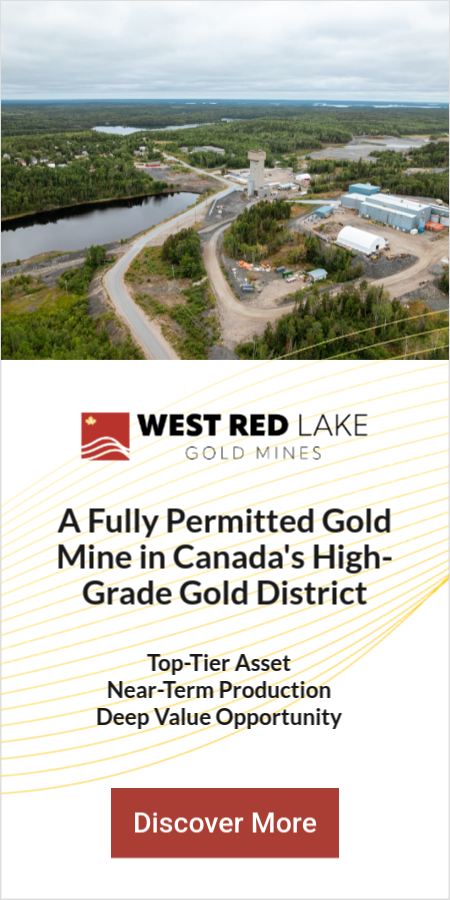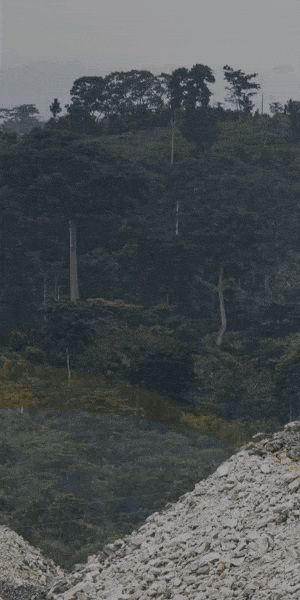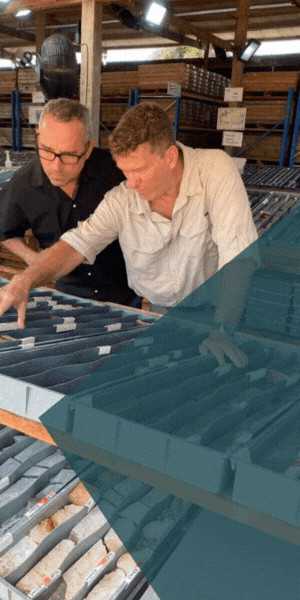How Mining Companies Fight Back When Countries Steal Their Assets
.jpg)
Mining lawyer explains international arbitration against states for resource nationalism, citing $331M Poland win and active cases globally.
- Timothy Foden of Boies Schiller Flexner LLP handles international arbitration cases for mining companies against sovereign states, focusing on resource nationalism disputes across jurisdictions including Poland, Tanzania, Peru, Morocco, and Mexico.
- The firm has achieved significant success over the past six years, including a $331 million award against Poland for the Jan Karski coal project and three successful cases against Tanzania, with selective case acceptance based on financing viability and win probability.
- Cases operate under bilateral and multilateral investment treaties dating to the 1950s, protecting foreign investment while requiring proof that sovereign states acted arbitrarily or broke their own mining codes and administrative laws.
- Most cases require specialist litigation financiers due to junior mining companies' limited cash resources, with financiers evaluating cases based on legal merit, damages potential, witness quality, and the defendant state's ability to pay awards.
- The firm is experiencing high demand with active cases in Morocco (potash), Ethiopia, Montenegro, Mexico, and Poland, while monitoring emerging risks in Ecuador's new mining fee structure that could impact junior exploration companies.
The mining industry faces increasing challenges from resource nationalism and sovereign interference, creating a specialized legal market for international arbitration services. Timothy Foden, a partner with Boies Schiller Flexner LLP's London office, provides insight into how mining companies can seek legal recourse when governments expropriate assets or deny permits through arbitrary administrative actions.
The Nature of Resource Nationalism Disputes
Resource nationalism represents a significant risk factor for mining investments, particularly in developing countries where political changes can dramatically alter the regulatory environment for foreign mining companies. Foden explains that his practice focuses on situations where countries run into problems "guided by principles of resource nationalism," whether driven by electoral politics or what he characterizes as "more greedy motives behind the newly installed leaders of a state."
The legal framework addressing these disputes relies on a network of bilateral and multilateral investment treaties established since the 1950s. These treaties protect foreign investment by creating binding arbitration mechanisms that operate under international law rather than the domestic legal systems of host countries. However, local mining codes and administrative law remain crucial, as successful claims typically demonstrate that sovereign states have "bent or in some cases even broken" their own legal frameworks to deny permits or concessions to foreign companies.
Case Selection and Financing Mechanisms
The economics of international arbitration require careful case selection, as most mining companies seeking legal recourse are junior exploration or development companies without substantial cash reserves. Boies Schiller Flexner operates on a selective basis, evaluating potential cases across multiple criteria before accepting representation.
The firm's selection process examines five key factors: evidence of legal breaches by the sovereign state, substantial sunk costs demonstrating genuine investment rather than speculative claims, quality of potential witnesses from the company's management team, jurisdictional compliance with relevant investment treaties, and the defendant state's capacity to pay potential awards.
"We only take on the cases that we think we can win."
Foden emphasized the importance of developing clear case theory and narrative for presentation to international arbitration tribunals. Third-party litigation financing plays a critical role in enabling these disputes, with specialist financiers providing funding for legal costs in exchange for a percentage of any eventual award. Foden notes that
“[these financiers] lend money where they think they're going to get money back because they do so on a non-recourse basis."
The involvement of sophisticated financial institutions serves as an additional filter for case quality, as financiers conduct independent due diligence on legal merit and damages potential.
Recent Case Examples and Outcomes
Boies Schiller Flexner's track record demonstrates the potential scale of international arbitration awards. The firm's success began with a $331 million award against Poland for the expropriation of the Jan Karski coal project on behalf of Green X (formerly Prairie Mining). This case established a foundation for subsequent victories, including three successful cases against Tanzania and a recent award against Peru for TSX-listed Lupaka Gold.
The firm's current caseload reflects the geographic diversity of resource nationalism disputes. Recent filings include proceedings against Montenegro on behalf of Tara Resources and against Morocco representing Emmerson plc regarding a potash project. Foden highlights potash as "a pretty hot commodity at the moment for state involvement because of the various geopolitics behind that particular mineral and its fertilizer impacts."
Poland represents a particularly active jurisdiction following political changes that favored state-owned mining companies over foreign investors. The Law and Justice party's policy shift created multiple claims as foreign companies that had been invited to develop Poland's coal sector found their projects subject to expropriation or regulatory barriers.
Interview With Timothy Foden, Boies Schiller Flexner
Arbitration Process
International arbitration proceedings follow a structured timeline spanning approximately two years from initiation to award. The process begins with 18 months of written pleadings exchanged between parties, followed by evidentiary hearings lasting one to two weeks, and concludes with tribunal deliberation leading to a final award.
Damages calculations require sophisticated financial analysis tailored to each project's development stage. For projects approaching production, tribunals may award the net present value of the mining operation, though with significantly higher discount rates than typical mining company valuations. For earlier-stage exploration projects, damages often rely on an "exploration multiplier" approach that applies a multiple to demonstrated sunk costs plus interest.
Foden emphasizes the importance of credible damages arguments, warning against inflated claims that could undermine tribunal confidence.
"If your mentality here as an advocate is to always go for DCF, even when the reporting codes would suggest to you that it's inappropriate, that's a really good way to get a tribunal not to believe anything you say."
Enforcement & Collection Mechanisms
International arbitration awards carry significant enforcement power, as they are enforceable in any jurisdiction where the defendant state maintains assets. However, practical collection depends on the sovereign's financial capacity and willingness to pay. Foden cites Venezuela as an example of a state that initially paid arbitration awards but eventually exhausted its ability to meet obligations, leading to asset seizure actions by funds like Elliott Management and companies like Crystallex.
Some states demonstrate greater responsiveness to arbitration threats, leading to negotiated settlements before formal proceedings conclude. Foden notes that certain governments will engage in settlement discussions when Boies Schiller Flexner becomes involved, recognizing the firm's track record and the potential costs of extended litigation.
Strategic Considerations for Mining Companies
Mining companies facing sovereign interference must carefully manage their public communications to preserve legal options. Press releases downplaying government actions or suggesting problems are manageable can later undermine arbitration claims.
"What they say to the market when things start to go wrong can be the petard that they hoist themselves on."
The firm increasingly provides early-stage advisory services to help companies preserve their legal rights while managing public relations and regulatory relationships. This proactive approach recognizes that mining companies prefer to focus on exploration and development rather than legal disputes, but must maintain legal options as insurance against sovereign risk.
Companies represented by the law firm:
- Green X (formerly called Prairie) - won $331 million award against Poland for the Yan Karsski coal project expropriation
- Lupaka Gold - TSX-listed company that recently obtained a $65 million award against Peru
- Tara Resources - case launched against Montenegro
- Emmerson plc - case launched against Morocco for a potash project
- Silver Bull Resources - hearing scheduled in Washington DC in October
- Almaden Minerals - TSX-listed company with a case against Mexico
- Sarama - operating in the francophone coup belt with a fully constituted tribunal
- Crystallex - mentioned as an example of a company that was awarded $1.4 billion against Venezuela
Emerging Risk Jurisdictions
Ecuador represents a current concern for mining investors following the implementation of substantial per-hectare fees ostensibly designed to combat illegal mining. For junior exploration companies with limited capital, fees of $25 per hectare could create financial strain that effectively forces asset abandonment. Such policies represent the type of regulatory changes that could generate future arbitration claims if implemented in discriminatory or arbitrary fashion.
Key Takeaways and Market Implications
International arbitration provides mining companies with meaningful recourse against sovereign risk, though successful claims require substantial preparation, financing, and legal expertise. The presence of sophisticated third-party financing and the enforceability of awards across global jurisdictions create economic incentives for states to consider the costs of resource nationalism policies. However, the effectiveness of legal remedies depends ultimately on state capacity and willingness to honor international legal obligations. For mining investors, understanding these legal mechanisms provides important context for evaluating sovereign risk and structuring investments in politically sensitive jurisdictions.
Analyst's Notes




Subscribe to Our Channel
Stay Informed










































